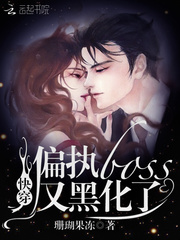第28天 there be句型
第28天 there be句型
28-1 there be句型的概念和用法
1. there be 结构的概念
there be结构在英语中是一种特殊的句式,表示“在什么地方或时间存在(发生)什么事”,常用“there be + 名称 + 地点 / 时间状语”的结构,还可以用来表示“计数”,表示一整体里含有多少。
there be结构是一种弱式强调结构。句型中there本来是具有地点意义的状语主语,be后面的名称原是表语。随着这一句型逐步演变为表示多方面意义的句型,其中的there也逐渐失去了其地点意义。
现在语法学家们把这一句型中的there解释为引导词,be为谓语动词,同时把be后面的名词解释为主语。be应和它后面的主语保持一致,如果出现并列主语,一般应和就近的主语部分保持一致,简称“就近原则”。例如:
There is a pen and some pencils in the pencilbox.
在文具盒里有一支钢笔和一些铅笔。
2. there be 结构的用法
(1)肯定结构:
there be 句型的肯定结构表示“某处存在某物或某人”或“某时发生某事”。
1)there is + 单数可数名词 / 不可数名词 + 地点 / 时间状语。例如:
There is a cap on the desk. 桌子上有一顶帽子。
There is some juice in the bottle. 瓶子里有一些果汁。
2)there are + 复数名词 + 地点 / 时间状语。例如:
There are some ducks on the lake. 湖上有几只鸭子。
(2)否定结构:
there be 句型的否定结构是在谓语动词be的后面加“not (any) ”或“no”。例如:
There are no books on the desk. 桌子上没有书。
=There are not any books on the desk.
(3)疑问结构:
there be 句型变疑问句时,there 和be倒装。例如:
Are there any people in the room? 房间里有人吗?
(4)there be 结构的时态:
there be表示存在的“有”,它有各种时态。例如:
1)一般过去时:there was / were。
There was a sport meeting in the playground yesterday.
昨天在操场上举行了一场运动会。
2)一般现在时:there is / are。
There are some apples on the apple tree. 这棵苹果树上有一些苹果。
There is a cap in his hand. 他手里有一顶帽子。
3)一般将来时:there will be。
There will be (=There is going to be) a show on Wednesday. 星期三将有一场演出。
4)过去将来时:there would be。
There would be a magic show at the theatre on Sunday.
周日在剧院会有一个魔术表演。
5)现在完成时:there has / have been。
There have been lots of accidents round here. 这里已经发生多起事故了。
6)过去完成时:there had been。
He told me that there had been an argument between them.
他告诉我他们之间发生了一场争论。
7)将来完成时:there will have been。
There will have been a definite result by Saturday. 到星期六就会有明确的结果了。
8)there be结构有不同的时态,而且可以和各种助动词或情态动词连用。例如:
There is to be a lecture at the school hall. 学校礼堂有一场演讲。
There must be a mistake somewhere. 一定在什么地方有错误。
(5)there be 与have 的比较:
1)用法不同。
there be表示某个时间或地方“存在”某人或某物,而have表示主语“拥有”某人或某物,作宾语的某人或某物属于主语所有。
2)结构不同。
there be + sb / sth + 时间 / 地点(副词或介词短语)
sb / sth + have + sb / sth else
There are some desks and chairs in the classroom. 教室里有一些桌椅。
He has two cars. 他有两辆车。(车是属于他的)
(6)there be 的非谓语形式有两种,即there to be和there being。
1)作主语。
当作主语时,一般是there being结构; 当句式中有for时,一般用there to be。例如:
There being a shop here is a great advantage. 这儿有个商店,真是方便极了。
It is impossible for there to be any more. 不可能再有了。
2)作宾语。
作动词宾语时,一般用there to be结构。常见动词有:expect, mean, intend, want, prefer等。
①介词for后常用there to be:
They planned for there to be a meeting on Monday. 他们计划周一开会。
②其他介词后常用there being:
John was relying on there being another opportunity. 约翰希望再有一次机会。
③作动词的宾语时, 一般跟在动词expect, like, want, prefer, mean, intend, hate等后面,常用there to be:
Students don't want there to be another exam by the end of the term.
学生们不希望在学期末再考一次。
④在动词imagine, appreciate, avoid, mind, excuse等后面常用there being形式:
You can imagine there being a hot discussion about this matter at the meeting. 你可以想象会上对这个问题的讨论有多激烈。
3)作状语。
①在句首作状语表示原因、条件、方式时常用there being形式:
There being no buses, we had to walk home.
由于没有公共汽车,我们不得不走着回家。
②如果作目的、结果状语,则常用there to be形式:
In order there to be a more comfortable living house, she decided to buy that flat with a beautiful garden.
为了有一个更舒适的生活空间,她决定买那套带美丽花园的公寓。
28-2 there be句型的扩展
there be还可扩展为许多其他句型,下面对there be句型的扩展作一归纳。
1. there be + 主语
这种句式表示事物的客观存在, there be放在句首, 而把真正的主语放在后面, 可以用来表示现在时、过去时、完成时和将来时。例如:
There is a boy on the playground. 操场上有个男孩。
There has been a lot of rain this month. 这个月雨水很多。
There will be an announcement soon. 不久将会发公告。
2. there are / is + 复数名词 / 不可数名词 + and + 复数名词 / 不可数名词
该句型表示同一类人或物的不同性质,尤其表示有好坏优劣之分,意为“有各种各样的”、“种种不一”等。例如:
There are friends and friends. 朋友有种种,有益友,有损友。
There is tea and tea. 茶叶有好有差。
3. there be + 名词 + 分词
(1)这种句式中分词可以是现在分词,也可以是过去分词。doing表示动作和前面名词有主谓关系,过去分词done和前面名词有被动关系。
There is a man sitting on the fence. 有个人正坐在篱笆上。
There was a car stolen last night. 昨晚有辆车被偷了。
(2)这种句式可以用“主语 + be + 分词”这一结构来代替。
There is a boy playing with a puppy in the yard.
(=A boy is playing with a puppy in the yard. )
一个男孩正在院子里和一只小狗玩耍。
There has been more money spent on armaments than on famine relief.
(=More money has been spent on armaments than on famine relief.)
花在军备上的钱比花在救灾上的钱还多。
4. there be + 名词 + 动词不定式
这种句式中的及物动词(动词不定式)也可改成被动式,意为“ (没) 有……要做”。例如:
There is a lot of work to do (to be done). 有许多工作要做。
There was no time to wait for you. 没有时间再等你了。
注意:There is nothing to do.与There is nothing to be done. 含义不同。前者意为“无事可做”, 后者意为“没有办法”。试比较:
There is nothing to do. I'm bored. 无事可做让我感到闷得慌。
(=There is nothing to entertain me. ) 没有什么活动来消遣。 28天学会英语语法




